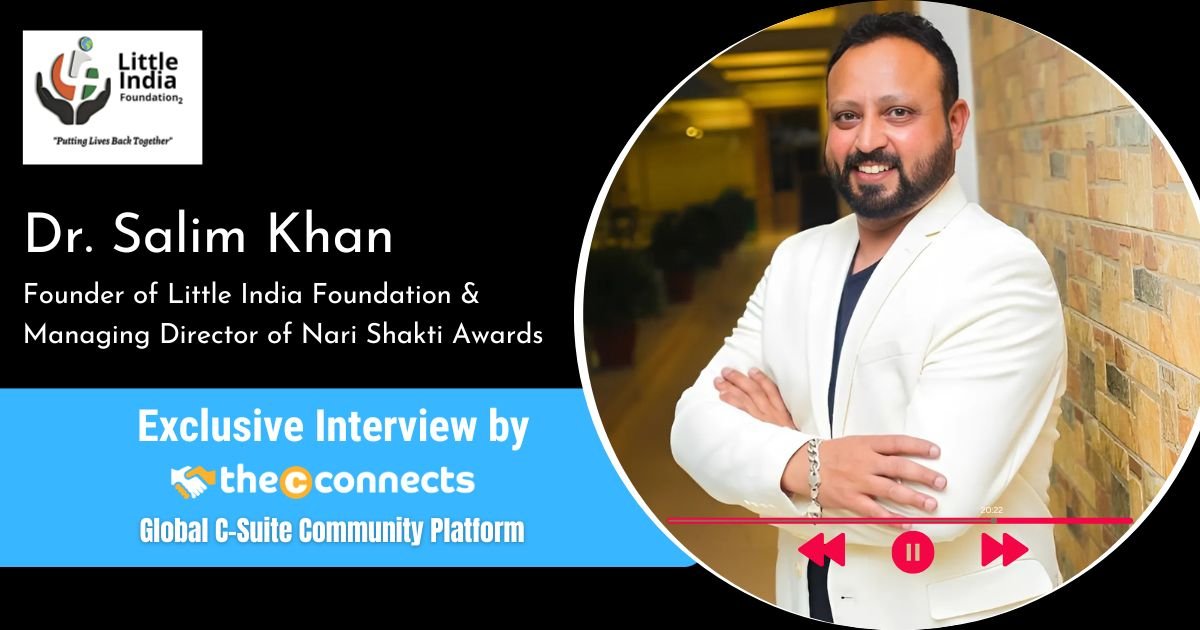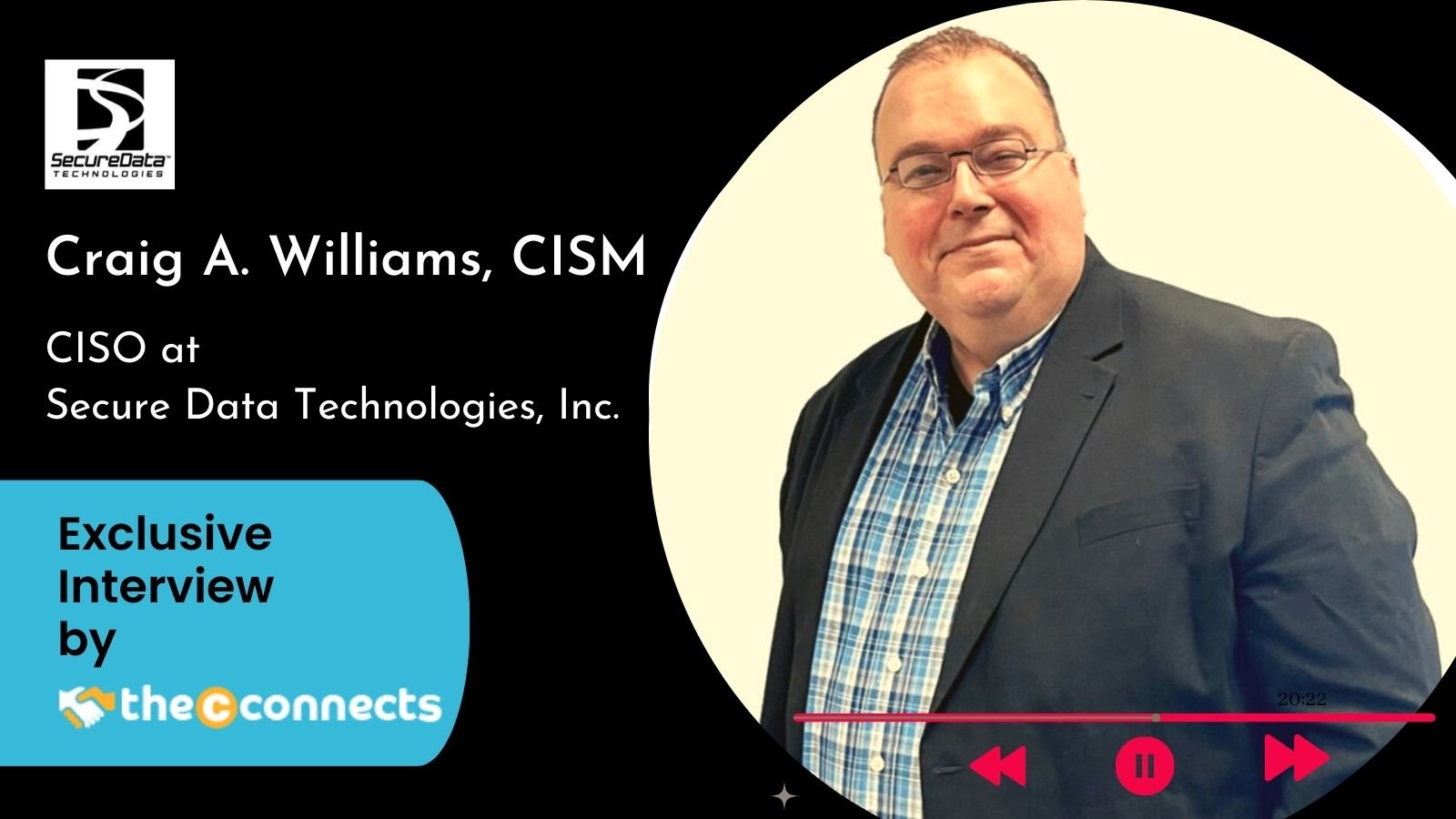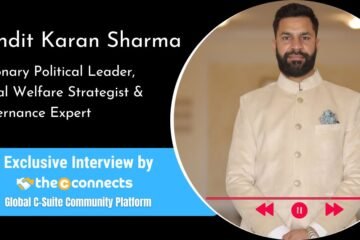TheCconnects: Good afternoon, Dr. Salim Khan. It’s a pleasure to have you with us today. Your work with the Little India Foundation has been making waves, and I’m eager to dive into your incredible journey. To start off, could you share what initially set you on this path from a corporate career to founding an NGO dedicated to ending hunger and empowering communities?
Dr. Salim Khan: Good afternoon, and thank you for the warm welcome. My journey is a blend of professional experiences and a deep personal calling. I spent many years navigating the corporate world, primarily in finance and technology, where I learned the art of strategy and leadership. Yet, despite the success and stability that came with that career, I couldn’t ignore a nagging feeling that I was meant to do more, more for society, more for those who struggle daily with basic necessities. The turning point came when I began witnessing firsthand the pervasive issue of hunger and the lack of access to essential resources in many communities. It was then that I decided to channel my expertise and energy into something that could create a lasting impact. Thus, Little India Foundation was born out of the desire to bridge that gap and offer not just relief, but real, sustainable change.
TheCconnects: That’s an inspiring transformation, Salim. Transitioning from a corporate role to the social sector must have been challenging. Along the way, who has had the most profound influence on your journey, and what lessons did you learn from them?
Dr. Salim Khan: I’ve been incredibly fortunate to have several mentors, but if I were to name one, it would be my father. His life was a living example of empathy, resilience, and the importance of giving back. He taught me that true success isn’t measured by the accolades you receive or the financial milestones you hit, but by the positive change you create in the lives of others. His unwavering commitment to our community instilled in me the importance of compassion over competition. That early lesson continues to guide my decisions, reminding me always to prioritize integrity and empathy in both business and personal endeavors.
TheCconnects: It’s clear that personal values play a crucial role in shaping one’s path. Speaking of challenges, every journey has its hurdles. What have been some of the biggest obstacles you faced while building Little India Foundation, and how did you overcome them?
Dr. Salim Khan: One of the most significant challenges was shifting from a profit-driven mindset to one focused on community welfare. In the corporate world, success is often quantified by financial metrics, but in the non-profit sector, the impact isn’t always immediately measurable. We had to innovate and develop new models for accountability and sustainability. Securing funding was another major hurdle. Unlike corporate projects with established revenue streams, social initiatives rely heavily on trust and long-term partnerships. To overcome these challenges, we invested time in building strong relationships with local communities, corporate CSR teams, and governmental bodies. Transparency became our cornerstone; by keeping our stakeholders informed and engaged, we gradually built a network of trust that allowed us to expand our reach. Every setback taught us a new lesson in resilience and reinforced the need for adaptive strategies.
TheCconnects: Your story of overcoming these challenges speaks volumes about your leadership. Over the years, what key lessons have you learned from your diverse experiences in both the corporate and non-profit worlds?
Dr. Salim Khan: There are several lessons that have been invaluable. First, empathy is not just a moral virtue, it’s a strategic asset. Understanding the real needs of the community enables you to craft solutions that are both effective and sustainable. Secondly, adaptability is critical. No matter how well you plan, unforeseen circumstances will always arise, and being agile allows you to pivot quickly without losing sight of your goals. Lastly, collaboration is key. No single person or organization can tackle these massive challenges alone. Building partnerships, nurturing relationships, and creating a shared vision have been fundamental to our progress. These lessons not only shaped our approach at Little India Foundation but have also influenced my personal philosophy on leadership.

TheCconnects: In today’s digital age, brands, whether commercial or social, face unique challenges. From your perspective, what do you think is the biggest hurdle for organizations operating in the digital space, especially those with a social mission?
Dr. Salim Khan: The digital space is a double-edged sword. On one hand, it offers unprecedented opportunities for outreach and engagement; on the other, it demands absolute authenticity and clarity of purpose. For social brands, the challenge lies in cutting through the noise. Digital audiences are savvy and skeptical, if your message isn’t genuine or if your impact isn’t tangible, it’s easy to lose credibility. Furthermore, misinformation and superficial storytelling can undermine even the most noble causes. At Little India Foundation, we tackle this by harnessing digital platforms to tell authentic stories of transformation. We ensure that every digital interaction reflects our core values, offering transparency and evidence of impact. This approach has helped us build a loyal community and foster trust among our supporters.
TheCconnects: That’s a compelling point about authenticity. Could you elaborate on how Little India Foundation’s initiatives are structured to address the multifaceted challenges faced by communities, particularly in terms of hunger and underdevelopment?
Dr. Salim Khan: Our initiatives are built on the understanding that challenges like hunger, education, and healthcare are interconnected. For example, our Food Ambulance service isn’t just about delivering meals; it’s a lifeline that connects communities to broader support systems. When we distribute food, we also share information about health services, educational programs, and livelihood opportunities. We’ve designed our programs to be holistic, addressing immediate needs while laying the groundwork for long-term empowerment. By collaborating with local organizations and leveraging technology, we ensure that our efforts are scalable and sustainable. This multi-pronged approach allows us to create a ripple effect where each intervention strengthens the community in several dimensions simultaneously.
TheCconnects: It’s evident that a holistic approach is at the heart of your work. Now, shifting a bit to a personal note, with such a demanding schedule, how do you find time to relax and recharge? What do you enjoy doing in your free time?
Dr. Salim Khan: Balancing professional responsibilities with personal well-being is crucial, and I make it a point to invest time in activities that rejuvenate me. I’m an avid reader, particularly of biographies and literature that explore the human spirit. I also enjoy walking in nature, which offers a peaceful escape and helps clear my mind. Additionally, I’m passionate about music and art, these creative pursuits not only relax me but often spark new ideas for community initiatives. Spending quality time with my family and engaging in community sports are other ways I stay grounded. For me, these moments of reflection and joy are essential, as they keep my passion alive and my vision clear.
TheCconnects: It sounds like you have a balanced approach to both work and life, which is truly admirable. As we look ahead, what emerging trends or innovations do you believe will shape the future of social initiatives, especially in the context of hunger alleviation and community empowerment?
Dr. Salim Khan: The future is undeniably intertwined with technology and innovation. I see great potential in data-driven approaches that enable us to better understand community needs and track the impact of our interventions. For instance, mobile technology and AI can help optimize food distribution networks and predict areas of critical need before they escalate into crises. Moreover, the rise of social entrepreneurship is creating a new ecosystem where profit and purpose coexist. This model not only attracts more investments but also inspires more collaborative efforts between private and public sectors. At Little India Foundation, we’re exploring these innovations to enhance our impact, ensuring that our initiatives remain agile and responsive in a rapidly changing world.
TheCconnects: That forward-thinking approach is truly inspiring. For those who dream of making a significant impact in the social sector, what advice would you give to aspiring entrepreneurs and changemakers?
Dr. Salim Khan: My advice is simple yet profound: start with a clear purpose and remain steadfast in your commitment. Understand the problem you want to solve deeply, immerse yourself in the community and listen to its needs. Build your journey one step at a time, and don’t be discouraged by initial setbacks. Surround yourself with a team that shares your vision and is willing to learn, adapt, and grow with you. Most importantly, always act with authenticity and integrity; these qualities are irreplaceable in earning trust and creating lasting change. Remember, every small effort counts, and with persistence, you can make a meaningful difference in the lives of many.
TheCconnects: Before we conclude, could you share one or two memorable moments that have reinforced your belief in the mission of Little India Foundation?
Dr. Salim Khan: There have been several moments that stand out, but one in particular remains etched in my memory. During one of our outreach drives in a remote village, I encountered an elderly woman who, despite facing numerous hardships, was the pillar of hope for her family and community. She told me that the meals we provided had not only fed her family but had also given them the courage to face each day with renewed hope. That interaction was a powerful reminder that our efforts, no matter how modest they may seem, can ignite a spark of optimism and resilience in people. It reaffirmed my belief that every act of kindness creates a ripple effect, inspiring others to join in the fight against hunger and inequality.

TheCconnects: Thank you, Dr. Salim Khan. Your insights, passion, and commitment to transforming lives are truly uplifting. Our conversation today has not only shed light on the challenges and triumphs of social work but has also provided invaluable guidance for those aspiring to make a difference. We appreciate you sharing your journey and wisdom with us.
Dr. Salim Khan: Thank you for this opportunity to share my story. I hope that our discussion inspires others to pursue meaningful change, no matter how daunting the challenges may seem. Remember, every effort counts, and together, we can build a future where compassion and empowerment are the cornerstones of our communities.
TheCconnects: Absolutely, Salim. Your work at Little India Foundation is a testament to the power of vision, resilience, and community spirit. We look forward to witnessing your future endeavors and the continued positive impact on so many lives. Thank you once again for this engaging conversation.
Dr. Salim Khan: Thank you. It’s been a pleasure, and I hope our dialogue encourages others to take action and spread kindness. Together, we can transform communities and create a legacy of hope for future generations.
You can connect with Dr. Salim Khan on LinkedIn here



